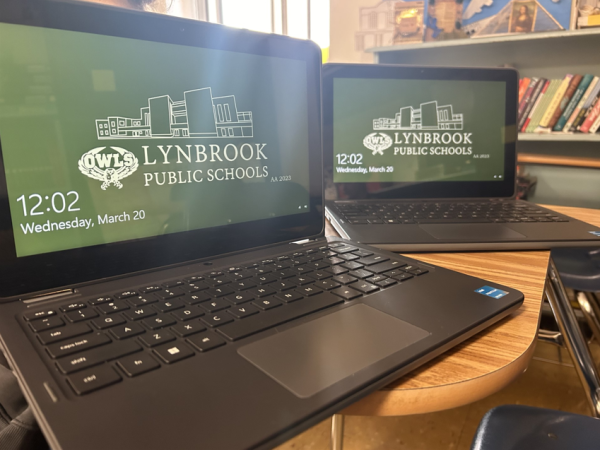How much technology does a person use and encounter on a daily basis? The digital world has continued to make its way into many aspects of everyday life. Almost everything can be done online now; the question at hand is, will the switch to everything digital be beneficial or harmful to society?
A person can do all of his/her banking online, order anything he/she can think of off sites like Amazon and eBay, communicate with whomever over any distance, and now, with the creation of AI, use computer software to write or create art just by giving it a prompt. Amazon even offers Amazon Fresh, where people can order groceries and have them delivered the same day.
Schools have been affected by this digital craze. Schoolwork is most if not all online, and grades are displayed in apps like PowerSchool, Schoology, Microsoft, Infinite Campus, and many others. Standardized testing like the PSAT, SAT, and AP exams have turned digital as well. Health and physical education teacher Brian Donaldson, also an LHS alumni, observed, “I’m glad the SAT is adapting to the way students learn today.”
One potential benefit to online schoolwork is the easy access. When a student is absent, he/she can quickly access homework or notes from class by checking Schoology or OneNote. On the other hand, glitches can occur which can lead to less work completed. Senior Library Clerk Jane Paladino commented, “With many teachers using learning management systems for digitally distributing material, posting assignments and assessments, students rely on their devices and the internet more than ever. While instant access to assignments and information can be great, it is even more challenging for students to find time to unplug and take a break from technology. When devices fail or are not updated or charged, that can also impact the ability to participate in classroom lessons and can be frustrating for teachers and students.”
As daily school is mostly online now, there are still teachers and students who would rather use the traditional pen and paper. Some people feel that handwriting information helps memorization while others feel that typing is faster and therefore more productive. Paladino added, “Being able to access work digitally and communicate with teachers when students are absent is beneficial and can keep students from falling behind. While students have access to limitless digital resources, it doesn’t necessarily encourage students to actually be resourceful; students may be less likely to try to figure things out on their own through trial and error when they can search for an answer.”
The physical-versus-digital debate continues with reading material; some feel physical books are easier and better to read while others prefer digital platforms where various books can be stored on one device. Junior Gabriella Ramirez said, “I personally prefer reading digital books because I feel like I read them more efficiently. Also, they’re more convenient because I can purchase any book at any time, and paper books nowadays are very expensive, so I like reading on my Kindle.”
This online craze was accelerated by the Covid-19 pandemic. In 2020, the internet became one of the most important resources to society. People chatted, texted, and called to keep in contact with those whom they could not see face-to-face. Everyone was discouraged from going outside and to stores, so the online market flourished. Soon, schooling and work joined the online field. Online or virtual learning was created to provide children with some semblance of education during the pandemic. Apps like WebEx and Zoom were used as digital classrooms, and all work was assigned through virtual platforms. This digitalization has had numerous effects on the job market. During Covid, people learned that certain jobs could be done from home. If a job can be accomplished from the comfort of a home, why go to an office?

While the internet and computers have affected employees and job settings, they have also left an impact on the actual processes of certain jobs. Since society is more inclined to work on computers, apps and programs have been produced to accelerate and enhance the quality of work. Another way that technology can affect businesses is through the use of credit and debit cards. Consumers pay at restaurants or stores by scanning a card rather than using paper money. Some businesses actually prefer the money over the cards; hence, many are incurring a small sub-charge to customers paying with a card.
Transitioning into the online world can have varying effects on society. In the future, more and more aspects of everyday life may go digital. As new technological advancements and countless changes occur, the world expands and develops, and people will learn to adapt.





















